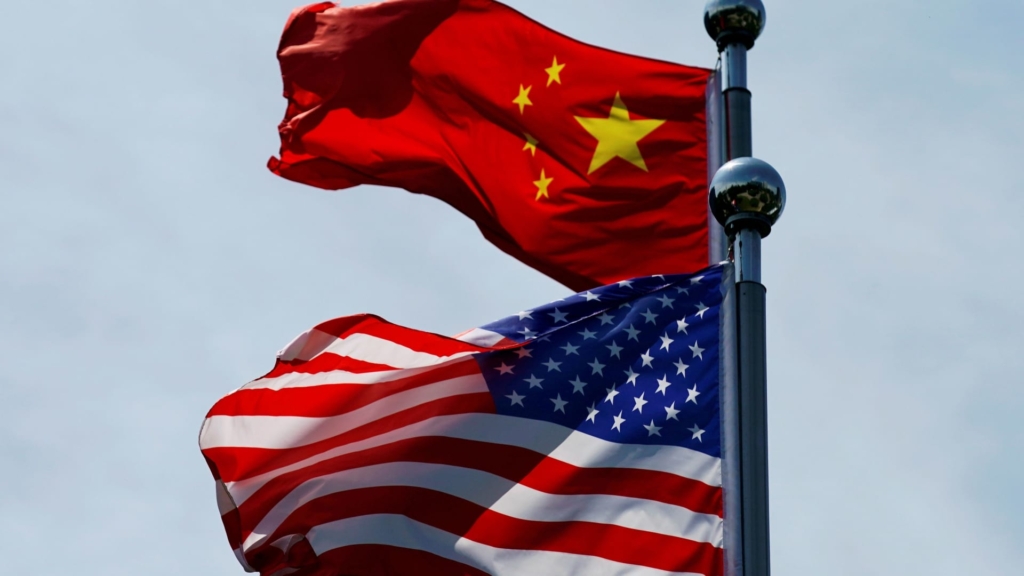On Friday, China’s Finance Ministry announced plans to implement a 34% tariff on all imports from the United States, effective April 10. This decision comes in response to recent tariff measures introduced by the U.S. under President Donald Trump.
In a statement, the ministry urged the U.S. to reverse its unilateral tariff actions and seek a resolution to trade disputes through equal and respectful negotiations aimed at mutual benefits.
The Beijing government condemned the U.S.’s decision to impose an additional 34% tax on Chinese goods, leading to a total tariff of 54%. They described this move as “inconsistent with international trade rules” and detrimental to Chinese interests, warning it could jeopardize “global economic development and the stability of the production and supply chain,” as reported by state news outlet Xinhua.
In a separate announcement, China added 11 U.S. companies to its “unreliable entities list” for purported violations of market principles and contractual obligations. Additionally, China’s Ministry of Commerce disclosed it would add 16 U.S. firms to its export control list and implement restrictions on seven categories of rare earth materials, including samarium and gadolinium.
China has also lodged a formal complaint to the World Trade Organization (WTO), asserting that the U.S. tariffs violate WTO regulations and harm the legitimate rights of its members, while undermining the global trading system. This was confirmed in a Google-translated statement from the Ministry of Commerce.
Trump responded to these developments on his Truth Social platform, stating, “CHINA PLAYED IT WRONG, THEY PANICKED – THE ONE THING THEY CANNOT AFFORD TO DO!”
Beijing previously indicated that it would take “resolute counter-measures” to protect its interests following the U.S.’s latest round of tariffs, which were unveiled on Wednesday.
While other U.S. trading partners have refrained from announcing retaliatory measures in anticipation of further negotiations, the European Union has expressed its readiness to respond if necessary.
The ongoing trade tensions are poised to affect a bilateral relationship that involved $582.4 billion in goods in 2024, according to the Office of the U.S. Trade Representative.
Experts believe that the U.S.’s protectionist stance may push China to explore new trade partnerships and implement additional stimulus measures to invigorate its ailing economy, which has been grappling with a property crisis and declining consumer confidence since the end of the Covid-19 pandemic.
The retaliatory tariffs announced by China on Friday led to a further decline in global markets, which were already under pressure from inflation concerns and fears of economic recession following the introduction of tariffs by the U.S.
The announcement of China’s retaliatory tariffs caused a sharp drop in U.S. stock futures, with contracts linked to the Dow Jones Industrial Average plummeting by 900 points, or 2.2%. Similarly, futures for the S&P 500 and Nasdaq 100 fell by 2.3% and 2.6%, respectively.
The news also adversely affected European markets, with the pan-European Stoxx 600 index declining by 4.5% by 11:27 a.m. London time, which followed a series of earlier losses, particularly impacting Europe’s banking sector, which dropped more than 9.5%.
— Finance Newso’s Katrina Bishop and Fred Imbert contributed to this report.


























